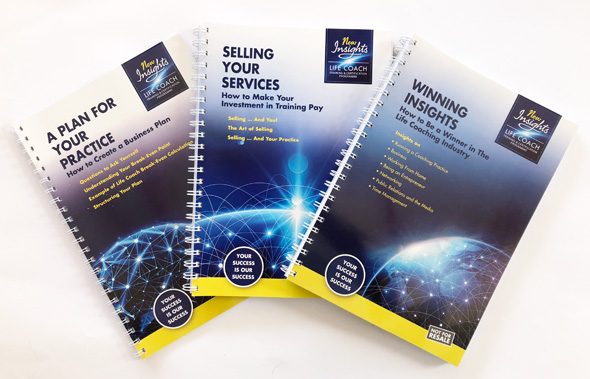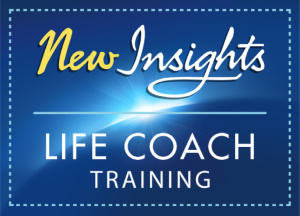People with a Passion for People
People with a Passion for People
MOTIVATORS OF CHANGE

Pain AND PLEASURE – THE TWIN MOTIVATORS OF CHANGE
Our lives are one big exercise in avoiding pain and attracting pleasure.
Simply put, pain and pleasure are the twin motivators of change!
This may at first sound over-simplistic, but it is an extremely powerful concept when it comes to understanding why some people struggle with bringing about needed change in their lives!
Perhaps you are considering a change in your life, like a career change to become a certified life coach?
Which of the motivators of change are at play here? Ask yourself why you are considering this.
Is it because you believe that on some level becoming a coach will lead you to a more pleasurable life? Or is it because your current career or life is not the way you want it to be and you want to make a change to avoid the 'pain' of continuing with the status quo?
Either way, you are motivated by the pursuit of pleasure or the avoidance of pain!
And before you think this sounds really weird, we're not talking about physical pain. We're talking about psychological pain (frustration, resentment, discomfort, being stuck in a rut, disillusionment, etc.)
First some background
Our brains are made up of many 'layers' that have resulted from our lengthy evolution.
Our brains have synthesised the learnings and experiences of everything from which we have evolved.
In a way, this could be likened to the rings you see in a cross section of a tree when you cut it, and that represent the age of the tree and the different ages through which it has lived.
SO WHAT?
What does that mean to us?
Well, inherent within the brain at a very deep intrinsic level is the fight or flight response, or pain detector.
When prehistoric man walked the Earth, it was a valuable skill to be able to recognise that an encounter with a sabre toothed tiger could kill him. That way he could run away when confronted by one!
In fact, that skill was so valuable that it became instinctive, or unconscious (i.e. not requiring one to think about it). So, any time prehistoric man came across some beast that could cause him pain, he would instinctively run away.
Conversely whenever anything that could result in pleasure arrived on the scene (e.g. food, the warmth and shelter of a deep cave, or someone of the opposite gender that caught the eye) the brain would go into auto pilot mode and be attracted to the pleasure source.
These instinctive reactions to the twin motivators of change, pain and pleasure, played an important role in propagating our species!
What That Means Today
OK, cut to today.
Now we still have those same response mechanisms inside our brains, only now we don’t need them as much. Often, the greatest 'pain' we face in the developed world is the 'pain' of not doing something right and feeling embarrassed or rejected.
So now, instead of the brain linking physical pain with a bite from a sabre toothed tiger, it links emotional or psychological pain to an embarrassing situation.
Any time you are attempting to do something new and your brain gets the slightest whiff that it may result in (perceived) pain, it will go into autopilot and make arrangements to 'remove you from the scene' - pronto!!
THE IMPLICATIONS
Believe it or not this is wonderful, when you can direct it.
The snag is that most people run on auto pilot most of the time, and just go about blindly linking up things that involve challenge and change with pain, and things that involve a short term fix (but often a long term headache) with pleasure.
For example, public speaking, a challenging new career, getting fit and healthy, etc., may be linked with pain, whereas drugs, one night stands, binge drinking and so on are linked with pleasure.
When we are living reactively without proper conscious thought about the consequences, the motivators of change can, unwittingly, be employed in a harmful and damaging way.
THE APPLICATION IN LIFE COACHING
So, cut to a coaching session.How can the twin motivators of change be employed productively?
If you, as the coach, want to
help a client to change and you know that the client's brain is programmed to do ANYTHING to
avoid pain and attract pleasure, you can use this effectively to help them change for the better.
All you need to do is link massive pain to their current (disempowering) behaviours and ultimate pleasure to the new behaviours that your client deep down wants to adopt.
Easy!
So get them your client to attach huge pain to the thought of not achieving his or her goals. It will help motivate your client to achieve the goals and, ultimately, to avoid pain.
If you are thinking: "Why would we want to get clients thinking negative thoughts", it’s because we want them to use the God given biology that they have in a constructive way, i.e. to enlist 'pain' as a motivator!!
Questions To Ask
* What are the consequences of you doing that?
* Who else is affected by this?
* What would happen if you didn’t change?
* What would your friends think of you (use anything you can)?
* What will happen if you get this sorted?
* How would your life be better?
* How has this held you back in the past?
* What has this cost you so far?
* How will it cost you in the future?
Outcome you are looking for
The outcome is simple - to get your client to change.
Sometimes your client might not understand what you are doing, sometimes you may upset them, and sometimes you might get them to feel the pain of what is happening.
However this is insignificant compared to the joy they will feel when they have broken free and become all they can be.
Your outcome here is to do whatever it takes.
You cannot afford to be weak here. If you really want to help your clients understand that you may have to create a little 'pain' in their minds if you want to lead them in the right direction towards the great pleasure they want and deserve.
Information extracted from the Life Coaching Business Practice Support material included in the New Insights Life Coach Training and Certification Programme

Back to Life Coach Marketing Resources
